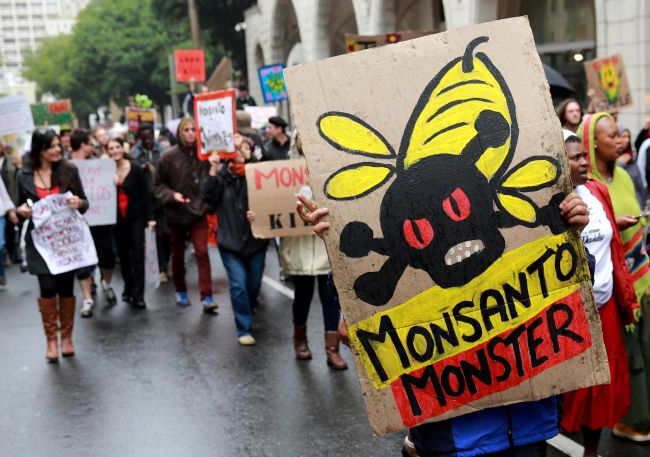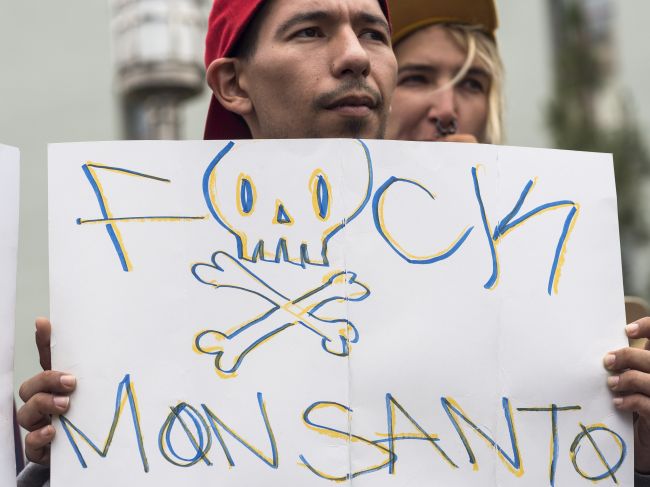
At the United Nations Climate Change Conference in Paris last week, agricultural giant Monsanto did not make any new friends. A number of civil society groups gathered to announce they’re going to put the company “on trial” for crimes against humanity, stating:
Monsanto promotes an agroindustrial model that contributes at least one third of global anthropogenic greenhouse gas emissions. It is also largely responsible for the depletion of soil and water resources, species extinction and declining biodiversity, and the displacement of millions of small farmers worldwide.
The citizens’ trial is calling itself the “Monsanto Tribunal,” and will hold their conference next October in The Hague, Netherlands. It’s not an actual trial, mind you, but the organizers insist it’s more than just a symbolic move to generate interest in their cause.
Following the Guiding Principles on Business and Human Rights that have been used by the United Nations since 2011, the Monsanto Tribunal aims to establish “ecocide” as an enforceable crime. They’ll be asking people to testify to Monsanto’s alleged corruption of the justice system and the media, as well as uniting different grassroots campaigns against the company.

Monsanto has an unsavory legal history of bullying farmers (sometimes to death — in India, almost 300,000 farmers have committed suicide in the past 20 years after being bankrupted by the agrochemical Goliath), and its pesticides and herbicides (most notably RoundUp) have been accused of causing various cancers through long term exposure.
The toxicity allegations, and the insistence that Monsanto is killing off all the bees and butterflies, have been refuted before. The Monsanto Tribunal hopes to gather more solid evidence supporting their accusations. But some of their most notable supporters have changed sides in the past year. Outspoken genetically modified organisms detractor Bill Nye toured Monsanto’s factory, and then went on StarTalk Radio to say he’d flipped his thinking on using GMOs, writing:
We are a society of farmers, and for thousands of years, farmers have been doing everything in their power to get the most product from their labour. Genetically modified crops are a way to do that.
It’s not a pure black and white issue, either. You can be pro-well-thought-out GMOs and still hate the guys who brought us Agent Orange. Mark Ruffalo certainly isn’t a fan. Just after the tribunal was announced, he wrote a post for EcoWatch explaining how, while promoting Spotlight, he had a chance to insult Hugh Grant (not that one, he meant Monsanto’s CEO) to his face:
Hugh, it’s not your messaging that makes you and your company horrible. It’s the horrible stuff you guys do that makes you and your company horrible. People don’t walk around making horrible stories up about good companies because they got nothing else better to do with their time. People like you and your company are horrible because … you are horrible.
Probably safe to say Ruffalo’s not going to get any personal tours of Monsanto’s factory any time soon.
via RT






